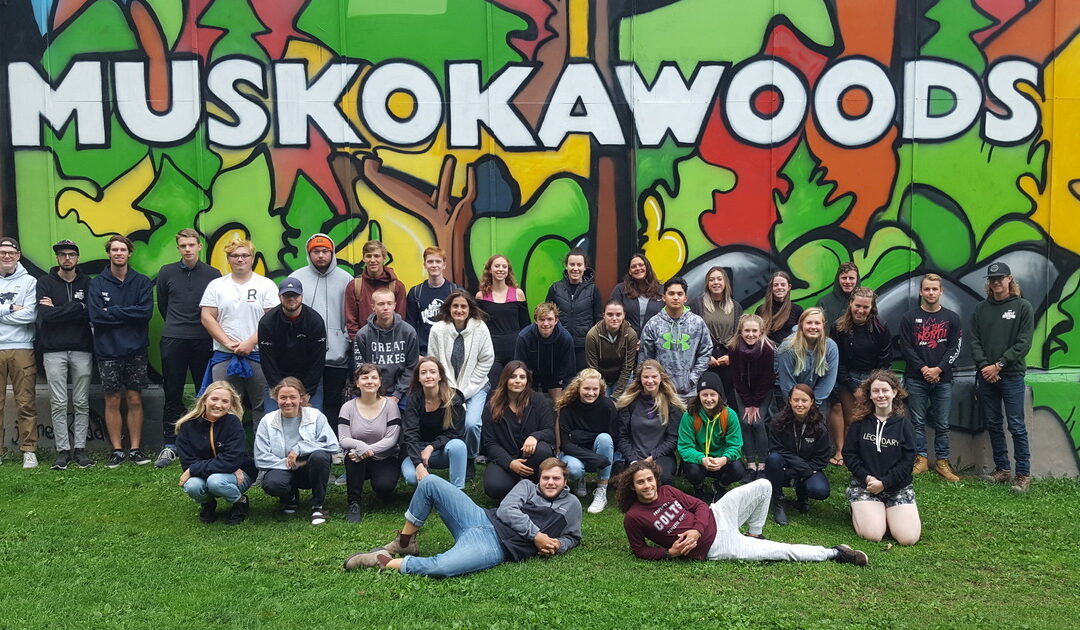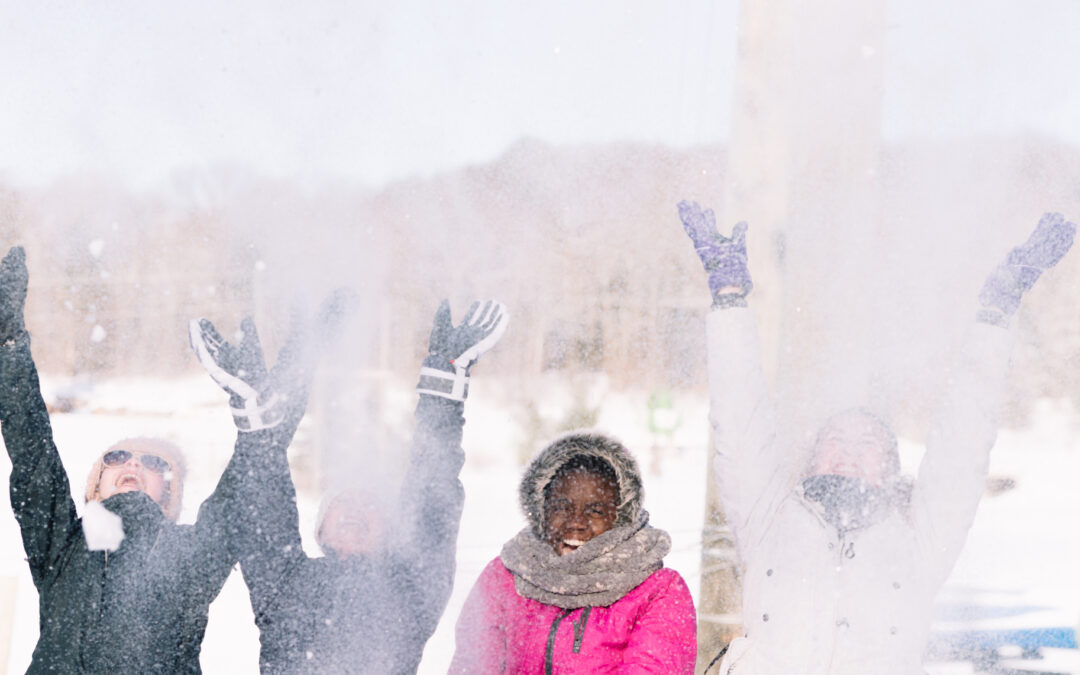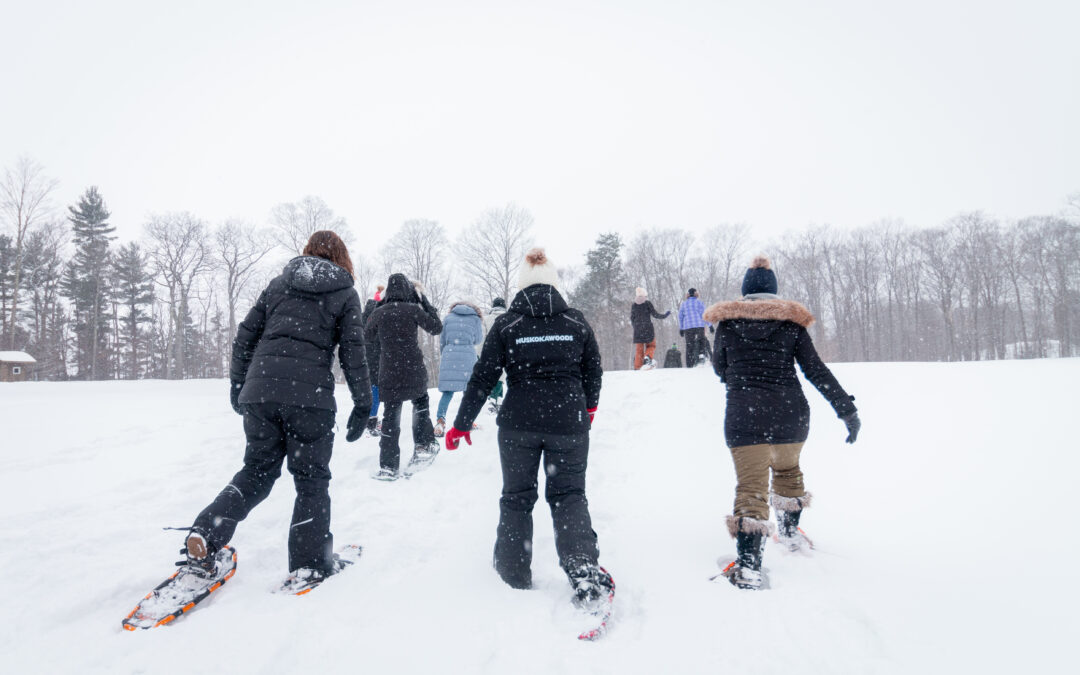We all remember how nice it was to get out of the classroom and go on a field trip in nature with our class. It turns out, however, that the residual memories aren’t just because we got to shake things up for a day. Outdoor education serves as a powerful tool for holistic development and learning, benefitting mental and physical health, increasing environmental awareness, fostering social skills, promoting cultural awareness, and even aiding with knowledge retention.
“Earth and sky, woods and fields, lakes and rivers, the mountain and the sea, are excellent schoolmasters, and teach of us more than we can ever learn from books.” — John Lubbock
Set in 1,100 acres of forest on the shores of Lake Rosseau, Muskoka Woods is the perfect place for your students to take their learning outside. With programming for schools and groups that includes nature hikes, campfires, and seasonal activities like snowshoeing, cross-country skiing and snow tubing, Muskoka Woods will keep your students moving through nature for the duration of your trip.
The importance of outdoor education
Outdoor learning benefits your students in so many ways:
- Experiential learning: Students directly interact with the natural world, fostering a deeper understanding of concepts and promoting knowledge retention.
- Environmental awareness and stewardship: By spending time in nature, students gain first-hand experiences of ecosystems, biodiversity and sustainability. They develop a connection to the natural world and acquire a sense of responsibility toward its preservation.
- Good health: Being outdoors and engaging in physical activities not only promotes physical fitness, but spending time in nature has been shown to reduce stress, improve mood and even enhance cognitive function.
- Social skills: Spending time outside often involves group activities and teamwork, which fosters social skills, communication and cooperation, and in turn develops resilience and builds self confidence.
- Interdisciplinary learning: Outdoor education inherently supports interdisciplinary learning, whereby students can explore connections between science, art and history, developing a more comprehensive understanding of the world.
- Practical skills: In nature, students learn survival skills, navigation techniques, problem-solving strategies and environmental conservation practices, which have broader applications in everyday life.
- Creativity and critical thinking: Nature stimulates thinking outside the box by encouraging students to observe, analyze and make connections, which promotes innovative thinking and problem-solving.
The importance of school trips
School trips play a pivotal role in a well-rounded education because they provide the opportunity for experiential learning, which complements and even amplifies students’ classroom instruction. School trips also inherently place students into social situations that encourage the development of communication skills and cooperation and they present students with opportunities to challenge themselves, which builds confidence and leadership skills. School trips are beneficial for students both on a personal level, and in their ripple effect that ultimately benefits the classroom environment and the whole school.
Why choose Muskoka Woods for your students’ outdoor education?
Muskoka Woods puts the great outdoors and the opportunity for adventure front and centre, all while honing leadership skills and strengthening the bond of your group.
Because most of the activities at Muskoka Woods take place outdoors, nature factors into everything students are involved in, whether it’s going up in the air on the ropes course, out onto the field for team sports, or into the woods to get an up-close view. Muskoka Woods is about immersing students in a stunning natural setting that allows them to really zero-in on the various activities and develop invaluable skills without the distractions of everyday life. And there are so many activities. Whether they’re on the giant swing or participating in the trust dive, skateboarding, or hiking the five kilometre nature trail, which turns into a snowshoe trail in the winter months, students are always benefitting from the outdoors.
After a trip to Muskoka Woods, students are reported to be more engaged in class and more involved in school life and to have built increased trust in their educators, viewing them as having an impact on their lives beyond academics. Additionally, students understand that they’re capable of so much more than they thought before the overnight school trip.
Help your students unleash the power of outdoor learning by booking a trip to Muskoka Woods, where opportunities abound, owing to the natural setting and a schedule of activities that answer your school’s desired learning outcomes.
Visit schools.muskokawoods.com for more information or to book your next Schools and Groups visit.




